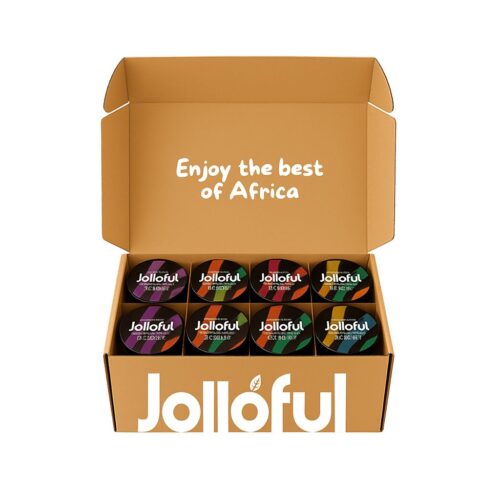
From Berlin Breakfasts
to Global Tables
Born from shared plates and stories, a mission began—
to share Africa’s soul, one meal at a time.
Every Saturday, a group of professionals from seventeen different countries gathered at La Provence on Savignyplatz. Over croissants and coffee, they swapped stories, laughter, and ideas—hosted by a magnetic West African friend who made everyone feel at home.
Then one morning, someone asked a simple question that would spark a movement:
“Why are we eating French food every Saturday? How do we taste African food?”
That one line changed everything.
Soon, the crew was gathered in their host’s home, diving into plates of rich West African dishes made by a talented chef. The flavors were bold, the room electric. Everyone wanted more.
With hardly any African restaurants around, they decided to make their own experience. Friends from Cameroon, Zimbabwe, Kenya, and Ghana brought their favorite dishes to the table—and for the first time, flavors from across the continent came together, all in one place.


The Reunion
Years passed.
La Provence closed, the group drifted apart. But in 2018, a surprise reunion in Berlin brought back the same question:
“Where can we get real African food?”
They searched—and found nothing that truly captured the richness they remembered.
Then, a breakthrough.
The next summer, one member cooked a homemade dish that caught the attention of their West African host. The taste felt right—authentic, exciting. Momentum returned.
Even with COVID-19 slowing things down, research quietly continued. With help from a Cambridge-trained lawyer in the group, they pinpointed the problem:
African food was hard to access—and when found, it lacked the consistency to build trust.
They decided it was time to fix that.

The Launch of Jolloful
Years passed.
La Provence closed, the group drifted apart. But in 2018, a surprise reunion in Berlin brought back the same question:
“Where can we get real African food?”
They searched—and found nothing that truly captured the richness they remembered.
Then, a breakthrough.
The next summer, one member cooked a homemade dish that caught the attention of their West African host. The taste felt right—authentic, exciting. Momentum returned.
Even with COVID-19 slowing things down, research quietly continued. With help from a Cambridge-trained lawyer in the group, they pinpointed the problem:
African food was hard to access—and when found, it lacked the consistency to build trust.
They decided it was time to fix that.





